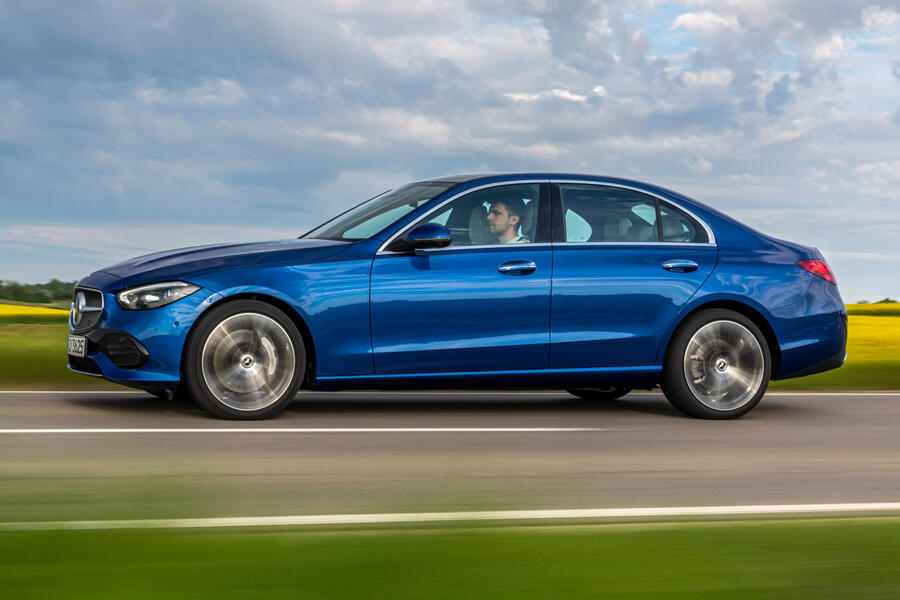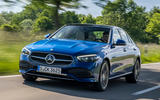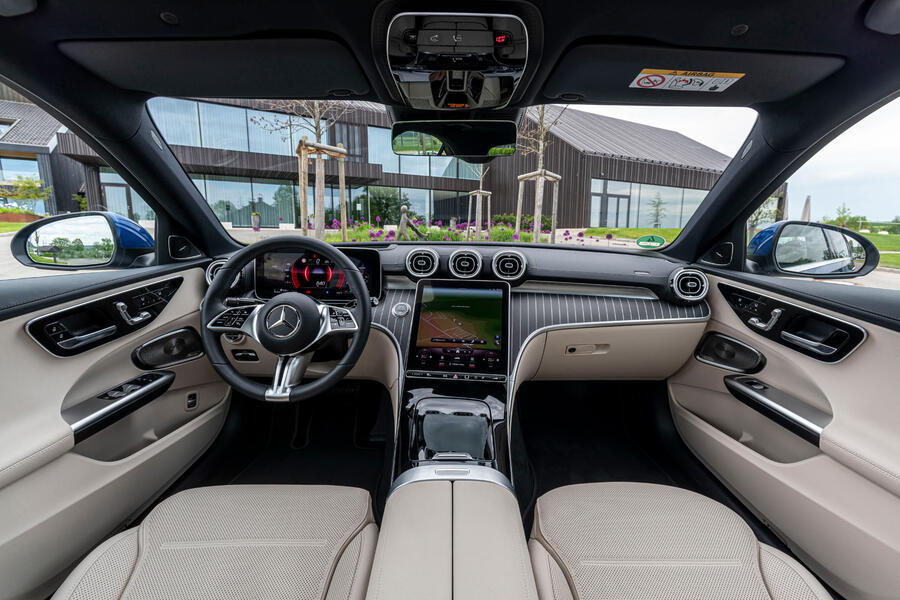What is it?
Perhaps you’ve always liked the plug-in hybrid idea but so far they’ve made little sense for you as an individual.
You’re certainly not alone: with any PHEV, it’s possible to save magnificently on fuel costs, but only if your driving habits fit a very specific pattern of behaviour. If they don’t, the meagre electric range of most PHEVs starts to feel pretty nominal and the heavy battery pack becomes an ornament that drags down the efficiency of an engine forced to work harder than necessary. All pretty contradictory.
However, with this new Mercedes C300e, the technology is coming of age. The plug-in C300e has an official electric range of 62 miles, almost double that of the outgoing version. By comparison, the otherwise excellent BMW 330e musters only 37 miles and there will be no PHEV Audi A4 until at least 2023. So if you want a premium saloon that you can use as freely as an EV during the week but has proper ICE legs for longer journeys, the C300e is your most promising option, and the estate version will only enhance the breadth of its appeal.
The layout is familiar, with charge for the electric motor supplied by a 25.4kWh battery pack beneath the stepless boot f loor. The pack can be replenished fully in half an hour at charging speeds of up to 55kW and the 127bhp motor it drives is integrated into the nine-speed automatic transmission.
Four-wheel drive is likely to follow, but at first the C300e will be rear driven, with its motor assisting a 201bhp 2.0-litre four-cylinder petrol engine that can propel the car alone. Total system output is 8bhp down on before but still generous at 308bhp.



































Join the debate
Add your comment
In this price bracket as a company car you've got the really not want a Tesla Model 3 LR to choose one of these haven't you? Nice interior, sad looking face, massively more tax, poorer performance. I'm sure it's a lovely place to sit, but surely the days of executive PHEVs are nearly over?
Having run a 330e for over a year, i can see how the Mercedes would seem better with approximately double the range. The problem really for me though, is that there is a crossover point at which either the ICE engine or the battery becomes irrelevant. The Merc electric range is pushing toward that redundancy for everyday commutes.
The ICE engine in the 330e comes into play quite a lot, but there is also real satisfaction in being able to traverse towns and cities on electric. I suspect the Merc would be run almost entirely on electric except on motorways. At this sort of electric range, a small 'range extender' engine would probably make more sense than its 2 litre petrol.
For those sceptical of PHEV's I tend to think of mine as a more environmentally friendly diesel engine equivalent. It has averaged 62 mpg overall, factoring in electricity costs.
Lots of know all's on here saying that 250mpg is ridiculous but for those who commute 60 miles a day or less which is 90%+ of the UK population who travel to work by car this kind of figures are easily possible if you have a home charger or charger at work. I had a Volkswagen GTE for 2 years and averaged 125 mpg and this could only manage about 20-25 miles per charge.
So 250mpg is possible if you don't pay for your electricity. I managed to 1000 mpg once, but that did entail driving off the forecourt without paying, would have got more mpg only there were a couple of flat out police chases.